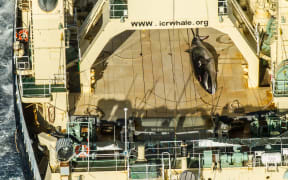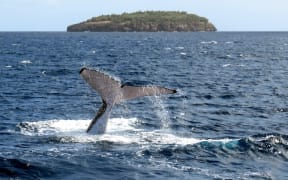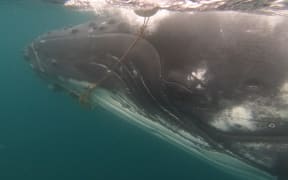A bid by Japan to end an international whaling ban has failed.
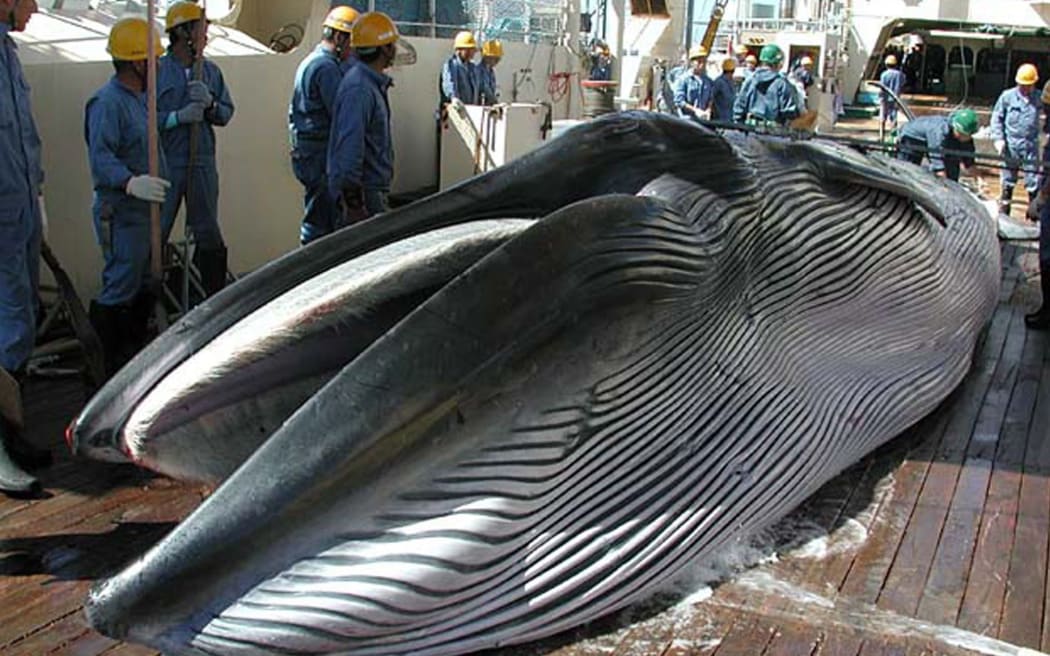
A Bryde's whale on the deck of a Japanese research ship. Photo: AFP / Institute of Cetacean Research
The Japanese government pushed for the global moratorium on whaling to be lifted and for commercial whaling quotas to be established by 2020.
At the International Whaling Commission (IWC) meeting in Florianopolis, Brazil today (NZT), 27 countries voted in favour of Japan's bid and 41 against.
The New Zealand government's representative to the IWC, Amy Laurenson, said the proposal's rejection sent a clear message to the government of Japan that commercial whaling belongs in the past.
"What Japan was really asking this commission to do was to set catch limits above zero and to start actually setting catch limits for some species, which it has referred to as abundant," she said.
"As an outcome of today there has been a strong reinforcement of international support to keep that global moratorium."
The vote increased pressure on Japan to cease its controversial 'scientific whaling' programmes, she said.
The Guardian quoted Japan's vice minister for fisheries, Masaaki Taniai, as saying the country would conduct a "fundamental reassessment of its membership of the IWC" as a result of the vote.
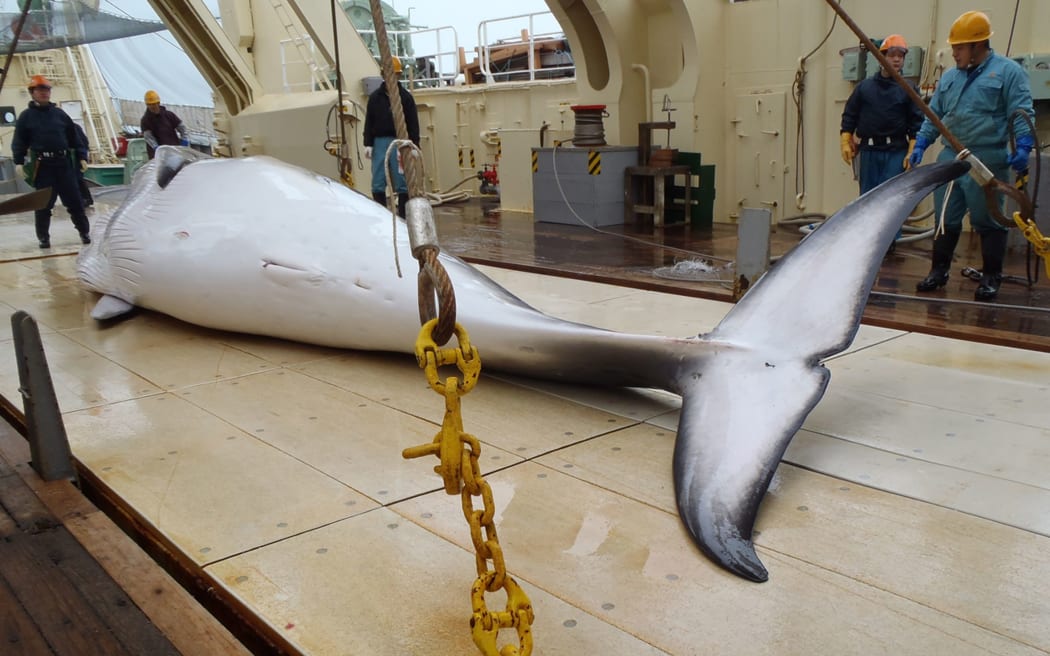
A minke whale on the deck of a Japanese research whaling ship in the Antarctic Ocean. Photo: AFP / Institute of Cetacean Research
New Zealand was among countries voted down in a bid to create a whale sanctuary in the South Atlantic Ocean earlier in the week.
The proposal had support from the majority of countries represented, but failed to get the 75 percent support required.
Ms Laurenson said it was disappointing the sanctuary, proposed in an area where no whale hunting occured, had not been approved.
"Those countries which believe in principle that whales and dolphins can be harvested as a fisheries resource felt that to support a sanctuary which prohibited all commercial whaling - and that would have been legally binding - was not something they could support, which was unfortunate."
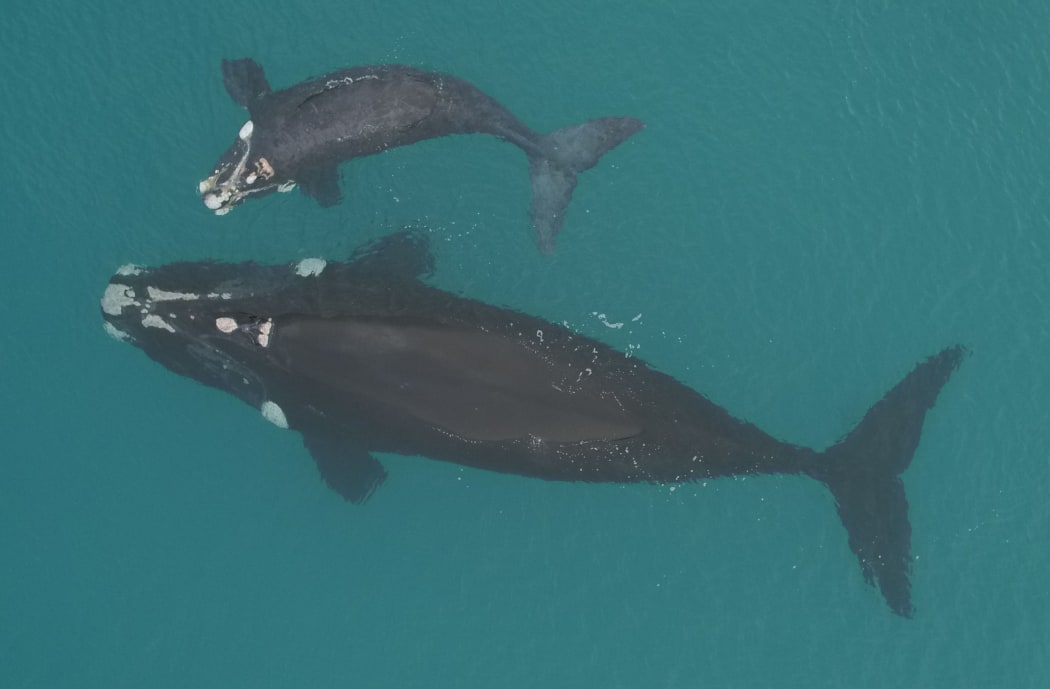
Mother and calf southern right whales, photographed from a research drone at the Auckland Islands breeding grounds. Photo: Steve Dawson / University of Otago
Meanwhile, some First Nations communities had their whaling quotas increased at the IWC meeting.
The limited catch quotas are for people who have traditionally eaten whale in Greenland, Saint Vincent and the Grenadines, Russia and Alaska.
These communities would be able to hunt about 480 whales over the next six years, Ms Laurenson said.
New Zealand supported the measure, which only applied to people who needed to eat whales to survive, she said.
"Those countries have to go through a very rigorous process in terms of establishing the need for the community. And that's a really important point for New Zealand, that this is not about the sustainability of the stock.
"So if the stock is recovering that doesn't mean justification for taking more whales."
The IWC voted in a non-binding declaration that whaling is no longer a necessary economic activity.
The new declaration enshrines the IWC as the governing body.
